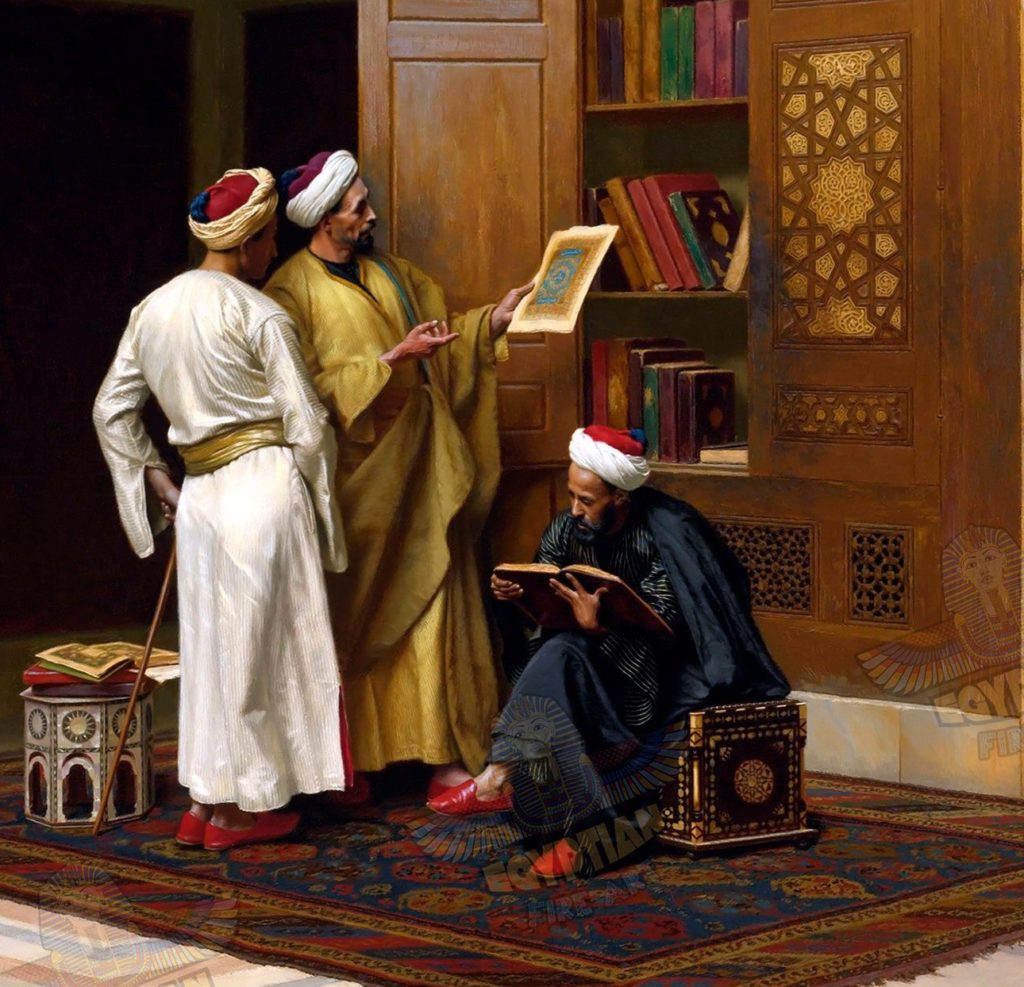
The mentality of the jurists and commentators, for the most part, has been one of churning out interpretations and explanations for any issue that raised itself, or even its opposite, in order to justify the myths and fabrications that were woven in regarding the Prophet, the Qur’ān and the early history of Islam.
BY JADOU JIBRIL
AS LONG AS ORDINARY Muslims swallowed these uncritically and without applying reason, any contradiction that emerged in the Qur’ān or the Sunna could be covered over by ready-made, canned explanations to overcome any embarrassment.
This mentality thus contributed strongly to the removal of Islam, the Qur’ān and the Sunna from the domain of history. Today, the Islamic tradition and narrative is in a dilemma due to what this mentality has produced over the centuries. These predicaments have only intensified in a world that has witnessed tremendous and unprecedented developments in how it understands the universe and the laws of nature and how it is deciphering their mysteries. Yet that mentality has remained unchanged and has entrenched itself outside the circle of history. Eventually, this mentality came to the point that it could no longer keep pace with the development of humanity and knowledge, and so the possibility of actual reform and any correction of the weft has become extremely difficult and perhaps unattainable.
Among the characterising features of this slippery, quicksilver, apologetic and reverential mentality is analogy thinking (qiyās), a strict distinction between what is for the ‘elite’ and what is for the ‘masses’ and the crystallization of explanations to explain away what is compromising.
It is a mindset based on analogy thinking and not on analytical thinking. This analogy thinking has remained the predominant approach, exercised through the fatwā method in Islamic sciences and theology. The ‘elite’ view is the one that continues to be taken into account in any issue and arena and determines what one might term the ‘aristocratic’ character of most arenas of knowledge in the Islamic world as it has been practised throughout the ages. This strict differentiation has led – grimly – to jurists being revered as authorities to be obeyed and has contributed to the ossification of Islamic knowledge, the calcification of the Islamic heritage, and has allowed the ‘temple guardians’ of the Islamic heritage and its intellectual and knowledge system to bully all others.
The quicksilver mentality remained bound by its gallery of explanations designed to overcome criticism
This may go to explain an aspect of why Muslims did not really benefit from the scientific and intellectual advances of their scholars in the ‘golden age’ of Islamic civilization and the methodology that these mastered in this era of brilliance, as if their advances did not really affect the society in which they lived. Their efforts appear to have been in vain while others benefited from them.
The quicksilver, reverential and justificatory mentality remained bound by its gallery of explanations designed to overcome criticism. It had no other choice since one ‘explanation’ imposed another ‘explanation’ with each of them becoming fixed in and anchored. The problem was that in so doing it was over the centuries it has been adopting positions that placed it in deeper predicaments and further embarrassment, so that researchers are now witnessing in the early history of Islam a black hole, and seeing the Islamic narrative and heritage as a mine containing tons of dirt with but rare grams of gold or silver.
The primary function of this quicksilver mentality seems to be limited to one of defence, justification and veneration. The sacred is equated to absolute truth, and one has no role but to recognize this equation and work to defend it by all possible means. To reach this goal, there are a number of ‘weapons’ activated to seek a way out of every ambiguity and obscurity, or to leap over any contradictions without resolving them.

Suggested Reading
The system of knowledge of the Islamic heritage has remained essentially one and the same single system, reproducing a copy of itself by repetition and the regurgitation of the herd. It is as if the path of knowledge, consciousness and the activation of reason came to a halt at some particular end-moment in human history, and the matter was closed.
Everything that comes after that moment is just a repetition following repetition. This has been sacralised – and even obligated – by wielding the weapon of ostracism and takfīr, and has been presented as the only option there is. The future of Muslims today thus lays behind them and not in front of them, so there is no need for thinking or for any hard work to be put in.
